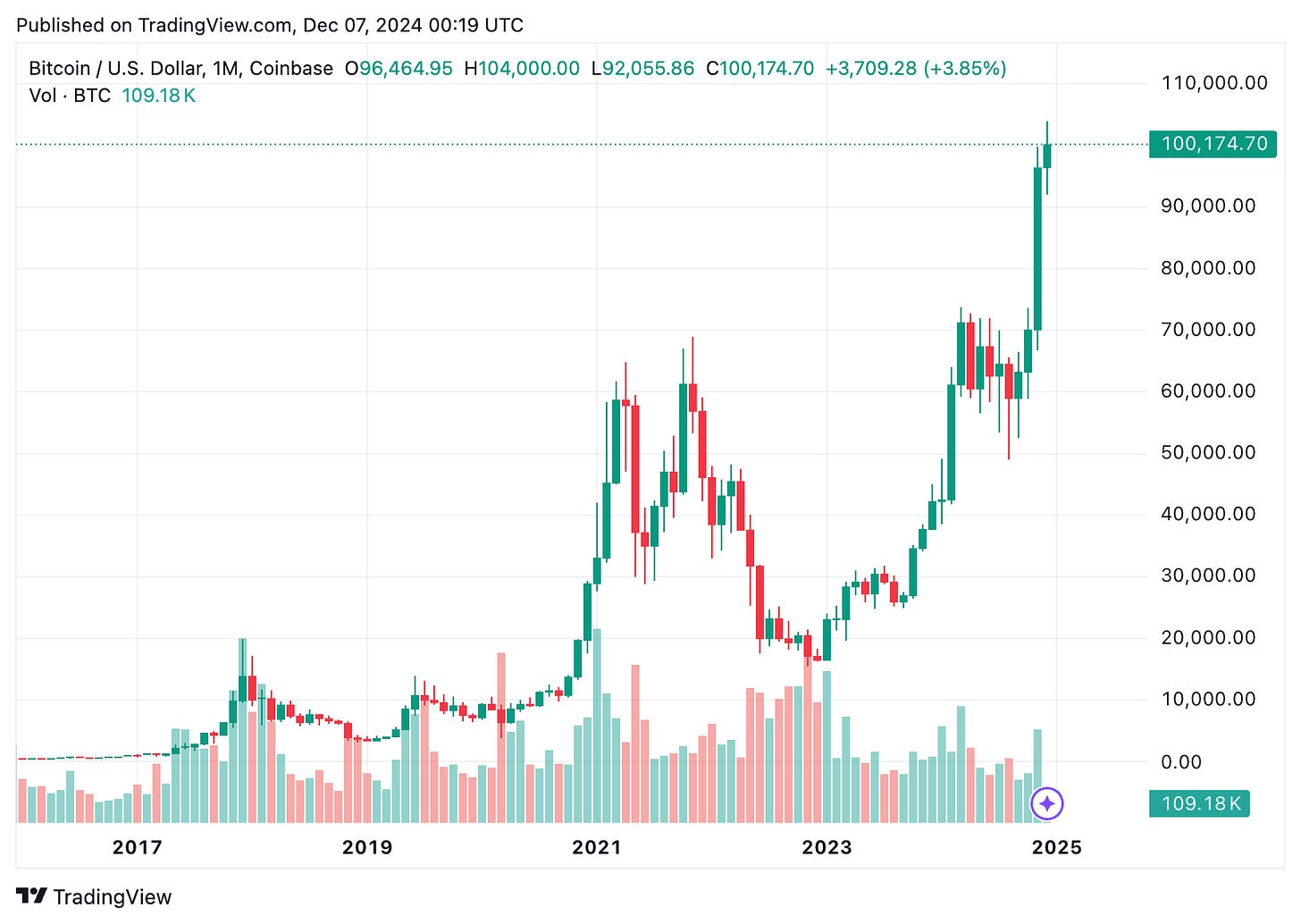What won the US election?
What is this force that is so strong that it swept the election and yet there has been little serious discussion of it, aside from of its acolytes?
The winner of the US Election was not a “who” it was a “what.” This is why activists who opposed Trump are reeling, back-footed, and, worse still, already exhausted: they’re grappling with a seismic world-historic force that used Trump and the Republicans as pawns in its unfolding destiny.
What is this force that is so strong that it swept the election and yet there has been little serious discussion of it, aside from of its acolytes?
The answer is clear if you ignore party affiliations, set aside distracting polarizing issues and look only at the one belief shared by those who won the majority of races in the Presidential and Congressional U.S. Election.
I am speaking of crypto. Yes, crypto, the “beanie baby fad” that mainstream society mocked, the “ponzi scam” that respectable normies derided, the “environmental catastrophe” that critics lambasted is now the one belief shared by the President along with 70% of the newly elected House of Representatives and and 63% of the newly elected Senate. If that isn’t clear enough, how about this: Trump has vowed to appoint a former top cryptocurrency lobbyist to head the SEC, the agency previously known for its irrationally exuberant crackdown on crypto.
It didn’t have to be Trump who rode the coattails of crypto into power. He is simply the ones who accepted the invitation while Biden/Harris pursued a failed campaign of suppression.
With crypto’s election win, we are now accelerating out of Late Capitalism into the next stage. And at the heart of this transition is a shift in who has money and power because the ones who have both are the ones who will serve crypto’s transformation of everyday life.
These transitions have happened before. Mercantilism was replaced by Industrial Capitalism which was replaced by Financialization. And I suppose we’re lucky to be alive during it.
So what does this mean for activists?
First and foremost, it requires a radical recalibration of priorities and strategies. Activists must understand that they are not contending with a singular administration or party; they are grappling with a technological-economic paradigm shift that is redefining the foundational structures of life. Crypto, as a historic force, is not merely a financial technology—it is an operating system for society. Its victory in the election signifies the ascendance of decentralized, algorithmic, and meta-political modes of power over the traditional, state-centered models that activists have historically targeted.
For activists, this means moving beyond reactive opposition to Trump or any single figurehead and instead engaging deeply with the mechanics of crypto itself. This entails not only understanding blockchain technology but also its broader implications for governance, privacy, labor, and ecology. Activists must become literate in the language of smart contracts, DAOs (Decentralized Autonomous Organizations), and tokenomics if they hope to influence the trajectory of this seismic shift.
Furthermore, activists must grapple with the ideological diversity within the crypto space itself. Crypto is not monolithic. It encompasses libertarians championing absolute freedom, anarchists dreaming of stateless societies, venture capitalists seeking profit, technologists dreaming big and a whole lot more. This ideological fragmentation presents both a challenge and an opportunity.
Finally, and perhaps most critically, activists must reckon with time. The pace of crypto’s ascendency has been relentless. Let us not forget that a single Bitcoin was worth exactly $0 when it was invented roughly a decade ago and is now over $100,000 each.
The election was not won by a person but by a world-historic force. If activists wish to remain relevant in this new era, they must understand that their fight is no longer confined to the old arenas of political resistance. It is now a fight for the soul of the algorithm, for the ethics of the tokens, and for the humanity of the blockchain that will define our future.





